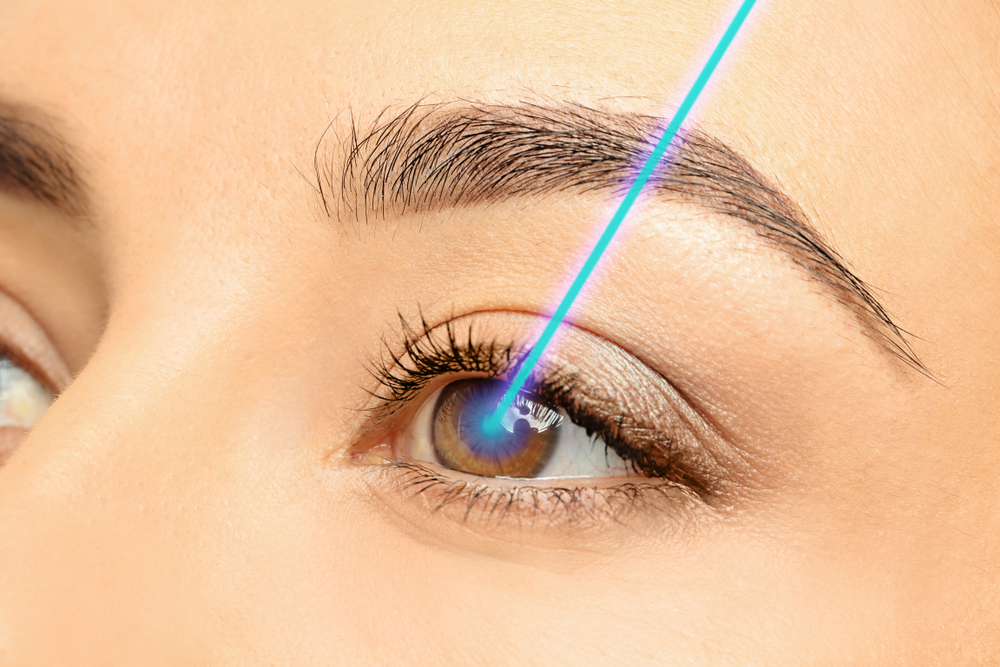
Millions of people suffer from refractive errors like nearsightedness, farsightedness, and astigmatism. Corrective eyewear like eyeglasses and contact lenses help improve vision. But more are considering a permanent solution: laser vision correction surgery. This procedure reshapes the cornea to correct vision. Is laser surgery or contacts better for you?
How Laser Vision Correction Works
Laser eye surgery reshapes the cornea using a precise excimer laser. The procedure changes how light enters the eye, allowing it to focus on the retina. Procedures like LASIK and PRK are outpatient surgeries done under local anesthesia.
In these procedures, the first step is to lift or remove the top layer of the cornea. Then, a laser sculpts the inner corneal tissue to match the required prescription. The outer cornea heals in its new shape within days to weeks.
Pros of Laser Vision Correction
Laser eye surgery provides several advantages:
· Permanent vision correction - It eliminates the need for contacts or glasses.
· Independence - No more hassles with lost glasses or inserting contacts.
· Cost savings - It has higher upfront costs but eliminates the lifelong expense of contacts.
· Appearance - Smooth recovery means no more glasses to alter appearance.
· Activities - Allows easier sports, exercise, and camping without the need for eyewear.
· Self-esteem - Many report feeling more confident without visual aids.
· Low maintenance - Unlike contacts, no daily cleaning is necessary.
Cons of Laser Vision Surgery
Laser vision procedures, while beneficial, have some downsides. There is a low risk of surgical complications like infection or scarring. Patients may experience temporary discomfort, including mild pain, blurred vision, and light sensitivity. Night vision issues may arise as contrast sensitivity can decline after the procedure.
Dry eyes can also be a problem as the procedure can reduce long-term tear production. There is a possibility of regression, with some prescription change still possible. This may require re-treatment. Lastly, the cost of the procedure is high.
How Contact Lenses Work
Contacts correct vision by refracting light before it enters the eye. The contoured lens bends light rays to compensate for focusing errors. Soft disposable lenses need replacement only every one or two weeks. Rigid gas permeable lenses are reusable for up to one year.
Pros of Contact Lenses
Contact lenses offer advantages like:
· Affordability - They are much cheaper than laser surgery.
· Reversibility - You can discontinue wearing contacts at any time.
· Immediate results - There is no downtime after getting contacts.
· Suitability - Contacts work for most prescriptions that qualify for laser surgery.
· Variety - Many brands and materials allow a custom fit.
· Low risk - No surgery means little risk of complications.
Cons of Contact Lenses
Contact lenses, while convenient, have some negatives. They can be a daily hassle as inserting, removing, and cleaning takes time. Some people experience discomfort, including dryness and irritation. Vision fluctuations can occur as contacts can move or cloud vision temporarily.
There is a risk of infection, especially with poor lens hygiene. Contacts may not suit some extreme prescriptions. Lastly, they are temporary solutions as they only work when worn.
Which Is Better?
The best option for you will depend on your unique circumstances. Consider factors like prescription, comfort, cost, and permanence to make an informed choice. It is best to discuss all options with your eye doctor.
Both laser vision correction and contact lenses can correct common vision errors. Laser surgery offers permanent vision freedom, while contacts provide an affordable temporary solution.
For more on laser vision and contact lenses, visit Coastal Vision at our offices in Newport Beach, Orange, Chino, Irvine, or Long Beach, California. Call (888) 501-4496 to book an appointment today.







